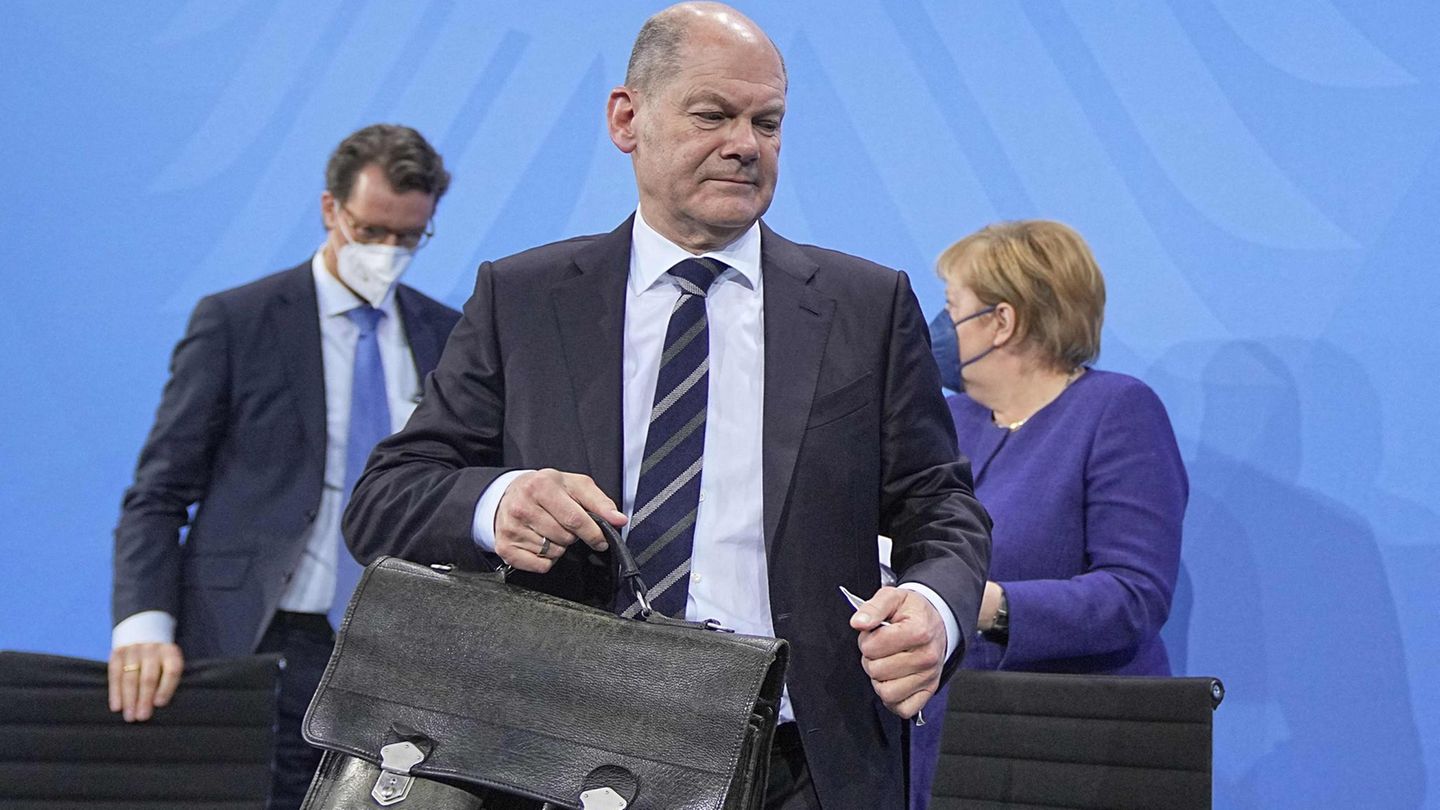The number of corona infections is rising again tremendously, especially those who have not been vaccinated are now facing new rules. The standard based on which 2G or 2G plus will apply will also be changed. Is that enough to prevent the worst?
In view of the increasingly threatening corona wave with record numbers of infections, millions of citizens are faced with new everyday requirements. The resolutions of the Bundestag, the federal states and the federal government could have far-reaching practical consequences for unvaccinated people. Where a certain number of corona patients are admitted to hospital, only those who have been vaccinated and recovered should have access to leisure events, restaurants and hotels (2G). Some federal states already have such regulations.
Federal Council must approve Corona measures
The Bundestag also decided on plans by the SPD, FDP and the Greens to provide for 3G requirements in the workplace, on buses and trains – but the approval of the Bundesrat on Friday remained open due to reservations previously expressed in the Union. The federal states asked the federal government to introduce compulsory vaccination in certain facilities such as hospitals and nursing homes for everyone who has contact with particularly vulnerable people.
“It is really the absolute time to act,” warned the Executive Chancellor Angela Merkel (CDU) urgently. She spoke of a dramatic and “really worrying” infection situation. SPD chancellor candidate Olaf Scholz announced “drastic measures” for the winter. It is now important as a country to stick together. People who have not been vaccinated so far should “give themselves a jolt” and get vaccinated. Merkel continues: “We know, and that is regrettable, that we could be in a better position if the vaccination gap weren’t so large.”
In order to get the spread of the virus under control, the federal and state governments have set new limit values for restrictions. In future, the hospitalization rate will be decisive. The value indicates how many people infected with corona per 100,000 people came to the hospital in the past seven days.
If the rate is above three, 2G should apply nationwide for leisure facilities, cultural and sporting events, restaurants and certain services in the state. Only those who have been vaccinated and those who have recovered will have access. If the hospital rate rises to more than six, vaccinated and convalescent patients should also submit a test (2G plus) in certain facilities such as discos, clubs and bars.
Only three countries would not be affected
Currently, the “hospitalization incidence” in 11 of the 16 federal states is more than three, so only Hamburg, Lower Saxony, Schleswig-Holstein and Saarland would not be affected. In three countries the value is above six: in Thuringia, Saxony-Anhalt and Bavaria.
According to Merkel, if the situation worsens, the countries should also reintroduce contact restrictions. In her opinion, the catalog of measures adopted by the Bundestag is not sufficient, said Merkel. However, it was agreed to review this catalog as soon as possible. North Rhine-Westphalia’s Prime Minister Hendrik Wüst (CDU) emphasized that this evaluation – at the latest on December 9 at the next Prime Minister’s Conference – was elementary for the federal states led by the Union.
In the morning, the Bundestag of the SPD, Greens and FDP decided on new regulations that include this catalog and, among other things, should bring 3G requirements at work, on buses and trains. In this case, proof of vaccination, recovery or negative test is required. For nursing homes and clinics, test obligations for employees and visitors are to be anchored. On the other hand, however, schools or shops should no longer be possible in the future.
In order for them to come into force, the Federal Council still has to approve these rules on Friday. The Union had threatened to block it – Wüst initially left North Rhine-Westphalia’s voting behavior open. From his point of view, the new “toolkit” restricts the countries’ possibilities too much. It could not be that the more extensive closure of the catering trade is no longer possible, he said. Other union states such as Bavaria and Schleswig-Holstein, on the other hand, have announced their approval. At first it was not possible to say whether a majority would be in favor of the law.
The Union considers it a mistake to let the “epidemic situation of national scope” expire as the legal basis for corona requirements. This state of emergency has so far given the state governments the opportunity to take far-reaching steps by means of a simple ordinance. According to the will of the traffic light parliamentary groups, the state parliaments should in future decide on restrictions in the leisure, cultural or sports sectors – exit restrictions, general business or school closings and travel bans should be excluded. If countries still order such measures now, they could remain in force until December 15.
Speed of vaccination
An urgent issue from the federal and state governments was also to speed up vaccinations. The federal states demanded a mandatory vaccination “facility-related” for employees in hospitals, old people’s and nursing homes who have contact with particularly vulnerable people. The federal states asked the federal government to “implement the vaccination requirement as soon as possible”. Merkel announced that the federal government would decide “shortly” how to proceed.
An acute instrument for containing the corona wave is a booster of vaccinations that were taken some time ago. Merkel said that 27 million would be needed by the end of the year. “The federal and state governments undertake to make everyone an offer,” she emphasized. For this purpose, more public offers are to be set up in addition to the practices. To date, 4.8 million people have received refreshments.
After weeks of discussion, the vaccination commission massively expanded its previously narrow recommendation. From now on she recommends “all people over 18 years of age the Covid-19 booster vaccination”, announced the Stiko. A more flexible handling of the time interval is planned: As a rule, the vaccination should be re-vaccinated six months after the last dose – a shortening to five months should be considered in individual cases and if there is enough capacity.
Experts have been warning for weeks that the corona spread is accelerating rapidly. “We are currently in a serious emergency. We will really have a very bad Christmas if we do not take countermeasures now,” said the President of the Robert Koch Institute (RKI), Lothar Wieler, on Wednesday evening. Nationwide, the new infections reported in one day exceeded the 65,000 mark for the first time, according to the RKI. The number of new infections per 100,000 inhabitants in seven days rose to a high of 336.9.
Source From: Stern
David William is a talented author who has made a name for himself in the world of writing. He is a professional author who writes on a wide range of topics, from general interest to opinion news. David is currently working as a writer at 24 hours worlds where he brings his unique perspective and in-depth research to his articles, making them both informative and engaging.




